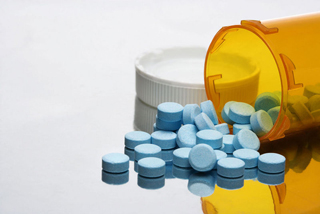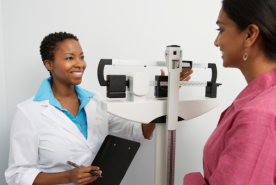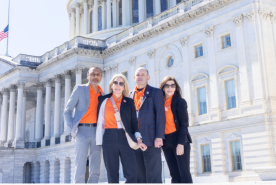August 12, 2014
 Open up your medicine cabinet at home and you're likely to find at least one type of pain medication. Often people don't realize that these same medications that help your pounding headaches disappear, reduce your fevers, and alleviate your aches and pains can have dangerous side effects including harming the kidneys. It's important to always read the label and weigh the risks and benefits before taking a particular medication.
Open up your medicine cabinet at home and you're likely to find at least one type of pain medication. Often people don't realize that these same medications that help your pounding headaches disappear, reduce your fevers, and alleviate your aches and pains can have dangerous side effects including harming the kidneys. It's important to always read the label and weigh the risks and benefits before taking a particular medication.
To spread the word about the importance of protecting your kidneys when taking pain medications, the National Kidney Foundation has joined the Alliance for Rational Use of NSAIDs, a new public health coalition of professional and patient organizations to increase awareness about safe and appropriate use of nonsteroidal anti-inflammatory drugs (NSAIDs).
Before you reach into the medicine cabinet, here are the National Kidney Foundation's Top 5 Tips about Pain Killers and Your Kidneys:
- Pain medications provide pain relief, but it’s important to balance the potential benefits with the risk of side effects, such as kidney damage, fluid retention, increased blood pressure, and digestive issues. Many painkillers are available over-the-counter (OTC) while others require a prescription, but all pain medications carry a risk of side effects. Some examples of over-the-counter (OTC) pain medicines and corresponding brand names are aspirin (Bayer®), acetaminophen (Tylenol®), ibuprofen (Advil®, Motrin®), and naproxen (Aleve®). It’s important to always read the label to see what type of medication you’re taking.
- If you have decreased kidney function, certain types of pain medications such as NSAIDs (nonsteroidal anti-inflammatory drugs) are not recommended because they reduce blood flow to the kidneys.
- High doses and long-term use of painkillers may harm the kidneys, even healthy ones. Pain medications should be taken exactly as prescribed or as directed on the label, at the lowest effective dose, for the shortest period of time.
- Since most NSAIDs are referred to only by brand or generic name, as opposed to by the “NSAID” category, many people may not be aware that they are taking this type of medication, or may accidentally take more than one NSAID at a time. Approximately 23 million Americans use nonprescription (over-the-counter) NSAIDs every day.
- Speak up and ask questions in your doctor’s office and at the pharmacy. People with underlying kidney problems may be particularly sensitive to NSAIDs. Talking with your doctor about it can help manage concerns and prevent further damage to the kidneys.
While working to increase awareness about NSAID side effects and the negative impact that they can have on the kidneys, the National Kidney Foundation and Alliance for Rational Use of NSAIDs recognize the value that NSAIDs serve in the pain community. Fear of side effects should not prevent people from taking NSAIDs, since untreated pain can become a serious health issue. Know the facts and be an informed patient to make choices that are best for you and your body!








